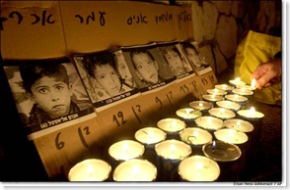I’ve wondered sometimes, how much I contribute to keeping war alive. Does the steam of my half-conscious half-baked desires rise and add to the ethane that war breathes? Does war seep out of our my pours in my grasping after never-enough. Do I breath war into the atmosphere through my impatience; impatience that can set me off envisaging the infliction of wounds on the head of some mere place-stealer.
And what about resentment? How free am I from this time bomb?
Can I liberate myself from resentment without the sense that I am absolving someone who harmed me? A sidestep that misdirects energy and creates no new possibility. Can I keep an experience of being hurt, slighted, snubbed, overlooked or worse, from hardening into resentment? which will always lead to some kind of retaliation.
 I’m convinced that resentment holds within itself any and all forms of conflict and the combustive capacity to set off all kinds of wars. And resentment always sustains wars, because while wars are fought by the living, or at least, the still existing, it’s the dead on each side that fuel them.
I’m convinced that resentment holds within itself any and all forms of conflict and the combustive capacity to set off all kinds of wars. And resentment always sustains wars, because while wars are fought by the living, or at least, the still existing, it’s the dead on each side that fuel them.
But this much I’ve contemplated and now believe. That when the dry vapours of resentment, anger and ill intent become saturated by disarmed hearts, peace will condense and rain down and wash over our faces.
This is the dew point of peace. Enough disarmed hearts to soak and quench resentment and hatred.
From where will these hearts come? How do we demilitarize our hearts to where they are innocent of retaliation and free of resentment?
Imagine the imagination of a disarmed heart. The kind of imagination that sees possibility in laying weapons aside, that sees defeat as being an opening, that understands that being killed is not nearly the final word.

“I’m convinced that resentment holds within itself any and all forms of conflict…”
I know you’re talking about world peace here, a much bigger picture than what I’m going to talk about, but for once, I don’t think I agree! (I’m sorry, and I hope you won’t think less of me.)
I think resentment is sometimes actually necessary for peace. I know, it sounds weird, but hear me out. Those inclined to gloss over wrong-doing, those inclined to make excuses for injustices to help them let go of resentment are more prone to put themselves in the line of fire again, and ultimately more likely to find themselves again involved in conflict. I can only avoid repeated injustice my way if I label it as that, and remember it, and feelings of resentment tend to come with remembering. The alternative—not to call a spade a spade, to forgive and permit no feelings of resentment—makes me, at least, more likely to put myself in the way of harm again, and with repeated injustice, actually more likely to go to “war”. If on the other hand I call a spade a spade (and permit myself the accompanying emotion) I can choose peace, and stay out of the zone with potential for conflict.
That’s probably a lot of psychobabble, and probably can’t be superimposed on thoughts about world peace, but that’s my immediate gut response—I spent a lifetime avoiding feelings of resentment only to find that it was an impossible task, and that it in fact perpetuated the war I was involved in. So I now feel my feelings of resentment (or anger) guilt-free—I see them simply as some kind of meter to inform me about danger zones, not as something I need to purge.
I would definitely agree that we need to feel our feelings of resentment. Denying our feelings, or burying them, just leads to deeper problems and ultimately more ‘war’ whether within or without. Connie, I like what you say about excusing injustice – it’s not a good thing.
Sounds like you’ve been able to build good ‘fences’ rather than ‘shooting arrows’. Letting others know where our limits are, I think, is different than attacking. Choosing to let something go is also different than receiving it as a forced thing. I know that there is a peace that happens for me when certain things don’t ‘matter’ anymore, yet I feel less ‘run over’ by others than when I was on the attack. I’m still wondering/exploring what that is.
Connie, thank you for your challenging thoughts…
If you’re using resentment as a synonym for anger, as it at least sometimes seems, I see no disagreement. You are, as I said in the post, liberating yourself from resentment without absolveing the one who hurt you. And that is a healthy function of expressed anger.
If however resentment–which as I understand it is a feeling of deep and bitter ill-will–if it remains in my heart, so does the war. The point I tried to make in the post was that world peace has everything to do with our own hearts.